 Our ratings and reviews of the Best Gas Powered Pressure Washers of 2023
Our ratings and reviews of the Best Gas Powered Pressure Washers of 2023
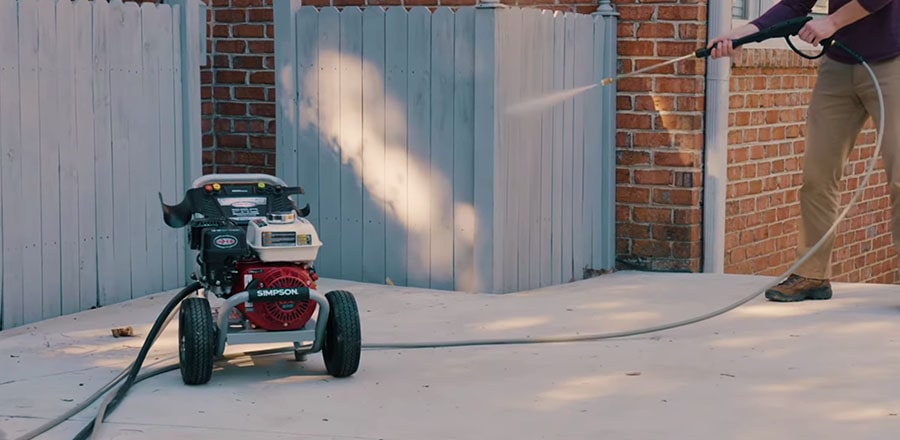
If you need heavy-duty cleaning power for exterior surfaces, nothing beats a top-rated gas pressure washer. From cars and oil-stained driveways to mildewed decks, patios and walkways, you’ll be amazed at how quickly you can make them look like new with the right power washer.

Our gas pressure washer reviews and buying guide will help you find the right machine for your specific cleaning needs. We’ll look at several important tests, including price comparisons, engines, cleaning power, accessories, ease of use, length of hoses and what jobs each machine is best suited for.
Here are the pros and cons of a gas pressure washer:

PROS:
- No power cord to limit reach, no power outlet needed
- Great for cleaning large areas quickly
- Best for removing very tough stains
- Versatile for a wide variety of applications

CONS:
- Heavier
- Louder
- More expensive (~$300 – $500 for residential models)
- Can’t use indoors due to exhaust
- Requires winterizing – must drain all water and add antifreeze
When looking for the right model for you, pay attention to these criteria:

- Price
- PSI / GPM / CU (cleaning power)
- Warranty
- Weight
- Extra nozzles (on board storage is a big plus)
- Plastic or metal wand
- Wheels – larger and pneumatic wheels provide the best stability and maneuverability
- Plastic or brass couplings for hose attachment
- Hose length – minimum 20-foot hose is best
- Hose storage
- Engine type and power
- Noise output
We’ve listed several top-rated gas pressure washers from brands such as Champion®, Ford®, WEN®, Simpson®, and Generac®. Browse the listings and compare to find the machine that’s right for you.
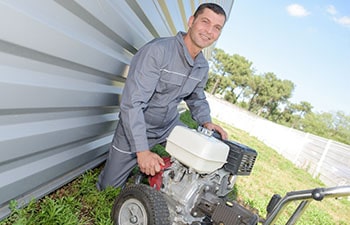
These machines and models represent some of the best gas-powered pressure washers currently available in the market today. No matter your choice, you’re making an excellent investment in both yourself and your home.
Our careful research and thorough testing allow us to deliver some of the highest quality reviews available. We strive to provide unbiased feedback on products, allowing people to make informed decisions about the investments they make in their home and life. We pride ourselves in our ability to help match homeowners with the very best reviews, tips, and advice online.
Gas-Powered Pressure Washers Frequently Asked Questions
Through the use of quick-release couplers, you absolutely can! Just note that you will lose about 50 PSI for every 50’ of additional hose.
A telescopic wand is an adjustable wand that you can adjust in length, generally from 6” to 48” on average. This allows the operator to reach more difficult places, such as rooftops and gutters. This also helps keep the person dry and free of any flying debris that may come up.
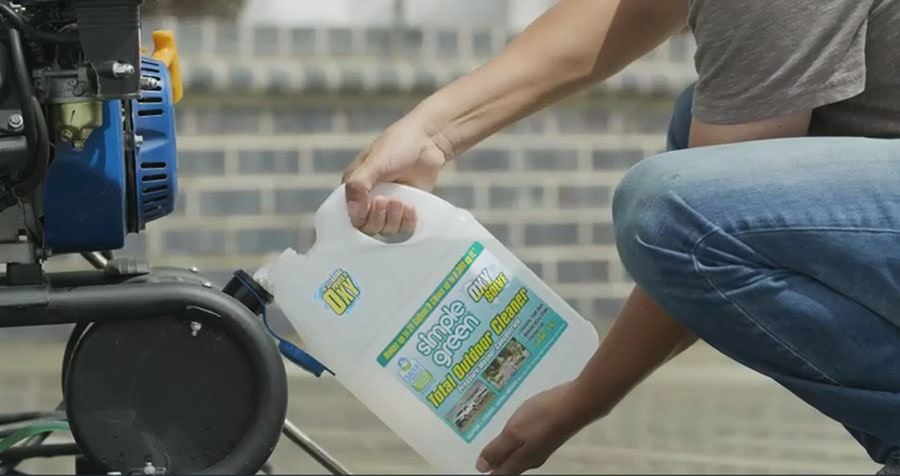
Generally, you are fine using most detergents or soaps so long as they are properly formulated for use in pressure washers to prevent clogging and ensure even flow. Consult your owner’s manual for additional information and possible manufacturer recommendations.
Don’t panic! First off, ensure that all of your connections are properly connected and that there is gas in your tank. If everything checks out there, you may have an issue with a clogged carburetor, which you can try clearing with a carburetor cleaner. If all of the above fails, you may want to consider bringing your machine to a repair shop for additional troubleshooting.
Best Gas Pressure Washers – Our 2023 Ratings & Reviews
We select, test, review and suggest the best products. We may earn a commission, if you buy something through our links.

You’ll notice that gas pressure washers are also a lot heavier than electric. But that’s due to the added weight of the engines, which weigh at least 25 pounds on most models. They’re also bigger so they can support the engine and gas tank.
Buy only what you need
When looking at all the numbers in the specs, keep these in mind:
- PSI – pressure per square inch (how strong the spray is)
- GPM – gallons per minute (how much water is used)
- CU – cleaning power units = PSI x GPM. For example 3200 PSI x 2.5 GPM = 8000 CU
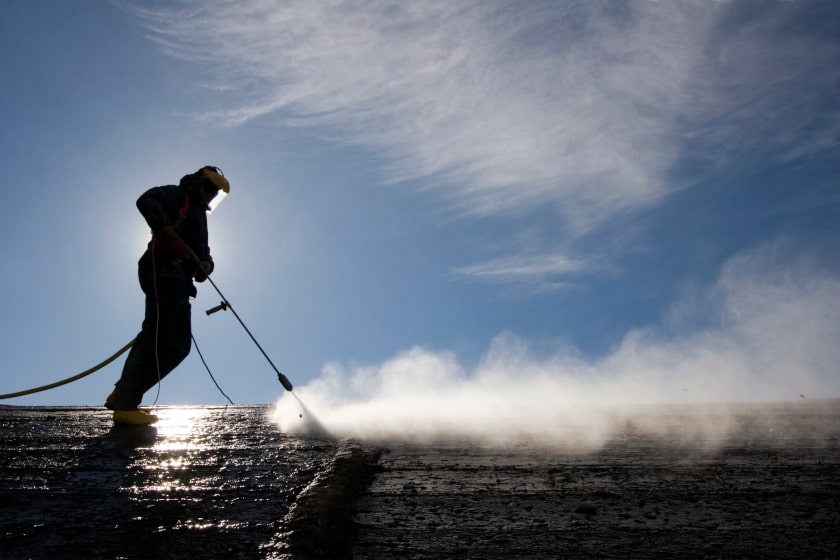
Look for the machine that will get the job done most efficiently for whatever surfaces you have to clean. They all have different features that will help you in one way or another. For instance:
- If you’re tall – look for washers with fold-down handles that will extend far enough so you don’t have to bend over every time you move the machine. Folding handles also make for easy storage.
- If you have back trouble – look for a lightweight machine. Remember that adding gas, water, and oil will increase the listed weight.
- If you have many kinds of surfaces to clean – look for machines with several different nozzles, adjustable pressure, and attachments included.
A note about warranties

Most gas pressure washers will come with a 2-year limited warranty. This is usually just for the engine. Other parts like the pump and accessories can have widely-varying warranties, from 1 year to just 90 days.
And the “limited” part means they guarantee the machine is “free from manufacturer’s defects in material and workmanship.” This basically leaves it in the hands of the service rep to decide whether the defect is the manufacturer’s fault or yours.
Some companies are surprisingly generous in handling these issues. WEN is one of those. Other manufacturers like Simpson, for instance, can be hit or miss. Always contact the retailer first if you have any issues. They’ll often accept returns a lot quicker.
Helpful tips and tricks to keep your Pressure Washer going strong
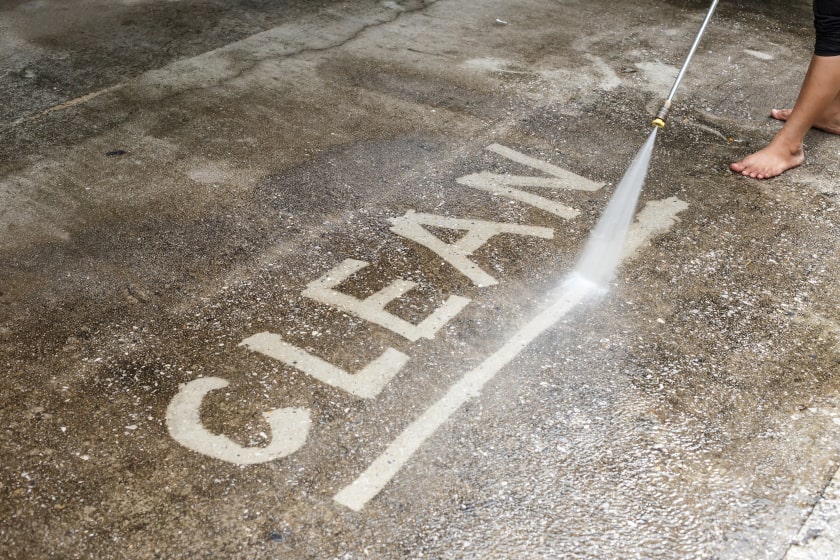
When we researched customer experiences, we gathered up a lot of useful real-world tips for troubleshooting problems that may arise with your pressure washer. You’re investing a good chunk of change on this machine. So take care of it, and it will take care of you. We’re listing some good troubleshooting tips below for your reference.
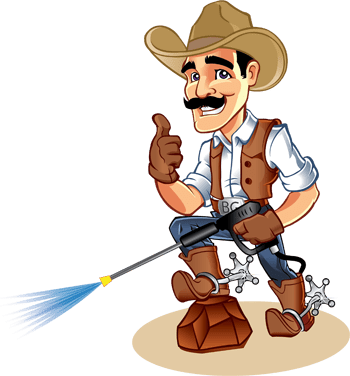
- READ THE MANUAL – This should go without saying, but then those Tim Allen types… seriously, just read through the manual over your morning coffee and highlight important info so you know what’s what.
- Oil leaking during shipping – This seemed to be a common problem with several machines. Oil can leak and soak into air filters which will choke out the engine if you try to start it. Check your air filter upon arrival. If it’s soaked with oil, wash the filter with Purple Power. Let it dry, then replace and see if it will start.
- Fittings & other connections loose – Check all these before start up. Tighten anything that’s loose but do NOT overtighten or you could crack the housing or strip the bolts.
- Prime the pump – Air trapped in hoses can damage the pump. Let the water run through it for at least 30 seconds (even a couple minutes) before you start spraying. If you have longer hoses, it can take longer to get primed.
- Post-op care – When you’re finished (especially after long jobs), don’t just turn off the machine and stick it in the garage. Take some time to do a little maintenance. Take the pump hose off and inject some pump saver to protect the inner workings of the pump. You just attach it on the inlet side and spray the can until it comes out the high-pressure hose side. It will prolong the life of your pump big time.

- Change that oil – After every 10 to 20 hours of use (more frequently for new machines), change both the engine and pump oil. New machines can have loose metal shavings that will come off in the oil, and you don’t want too many accumulating and running through the engine.
- Use the right oil – Normal 30W oil sold for automobiles can be bad for pressure washers. You need small, air-cooled engine oil, so make sure you’re using the right thing and not just grabbing whatever you put in your truck. Always use the oil recommended in the manual.
- Think about extensions – Wand extenders and longer (~50’) hoses are great for reaching those upper stories and gutters. They keep you off ladders and keep you from having to move the machine around so often. If you’re tall, a wand extension can really save your back when working on ground level surfaces.

- Do you have big hands? – Sometimes it can be hard to fit your hands in to detach the hoses from the machine with everything in tight quarters. Try putting on a quick disconnect adapter so it’s easier to detach.
- Don’t over tighten anything – We said this in #3, but just don’t. If you overtighten the inlet hose to the washer, for instance, you’ll probably have leaks. Remember, stronger isn’t always better!
- Finesse the choke – Many machines have manual chokes that need a little finessing before you use the pull-start. After you pull once or twice, move the choke lever a little bit, then pull again. Repeat if necessary.
- Be mindful of hoses when moving the washer – If they’re long and tend to get in the way, hold both inlet and high-pressure hoses near the washer handle when you’re moving the machine. This will prevent running over hoses or getting them tangled.

- Make sure your nozzles are securely attached – Many people have popped a nozzle onto their wand, pulled the spray trigger, and wheeeeee – the nozzle flew across the yard, never to be seen again. This is a real challenge if you lose a green tip in your green grass. So be sure the nozzles are firmly on before you start spraying.
Winterize that baby

For those of you who have cold winters, you must winterize your gas pressure washer before storing it so you’ll be able to start it again come spring. To do this, follow your owner’s manual instructions. Basically, you’ll be filling the pump and internal tubing system with RV-type antifreeze. If storing for over a month, drain the gas from the fuel tank as well.
Here’s a handy video to show you how: How to winterize a pressure washer.
With proper usage and routine maintenance, gas-powered pressure washers can easily last you several years without any major issues. The machines on this list are built to last, and will easily do so with the right care.
Get Your New Gas-Powered Pressure Washer Today
As you can see, for those looking for a gas power washer of their own for their home, there are plenty of incredible options available on the market today. Whether you’re looking for the top-of-the-line, such as the Simpson Cleaning ALH3425, or something more budget-friendly, like the Stanley SXPW3, there’s a perfect pick for you and your home.
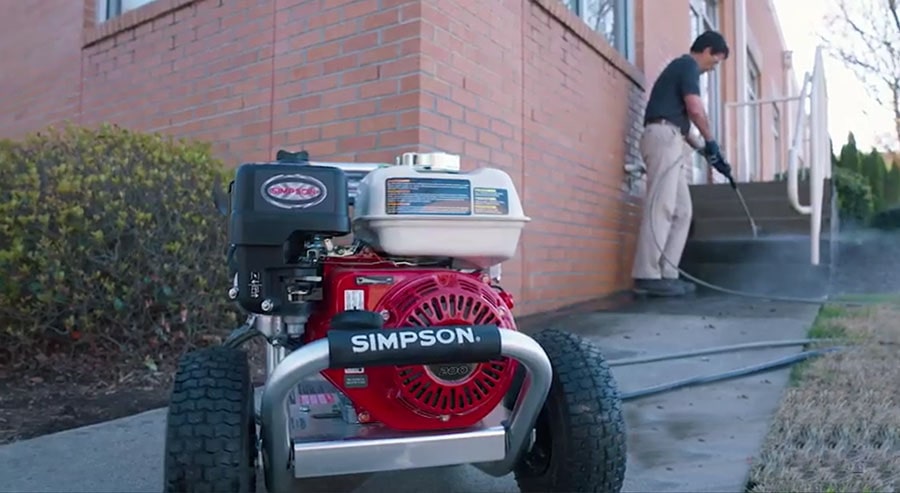
Gas power washers are an excellent investment in yourself, your time, and your home by making maintaining your property easier than ever. With any models outlined on this list, you’re sure to be set with a high-quality gas powered pressure washer that’s built to last for many years to come.
Be sure to check back often for additional reviews, news, tips, and advice. You can also follow us on Twitter, like us on Facebook, and add our Youtube channel for even more from the Cleanup Expert!

Pressure Washer Tips & Tricks
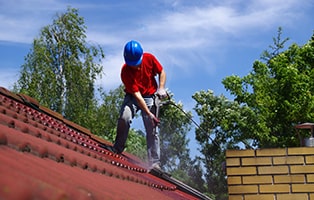
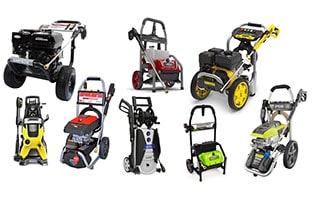
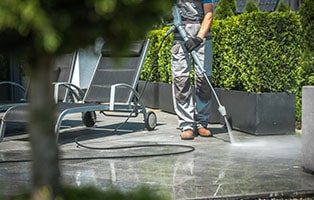
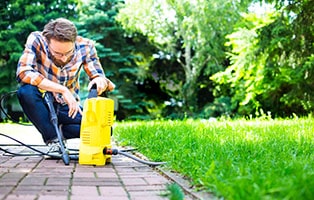
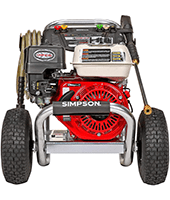

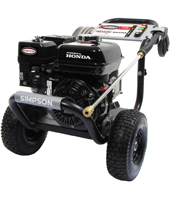

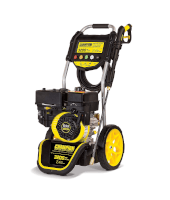
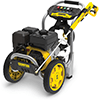
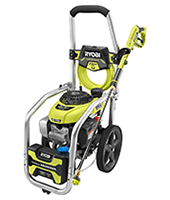
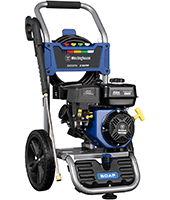
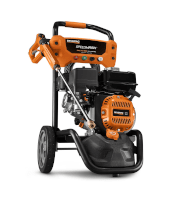
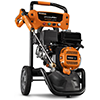
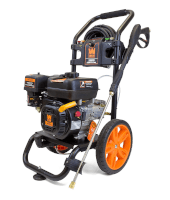
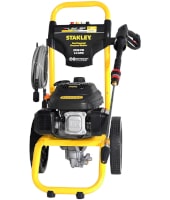
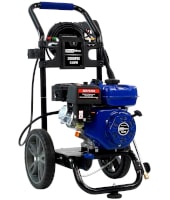
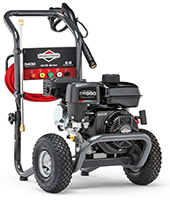
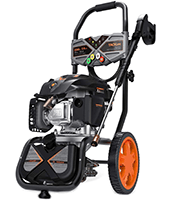
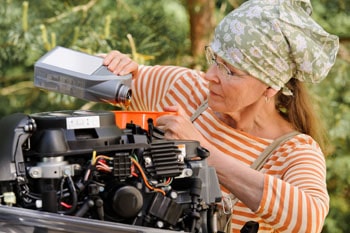
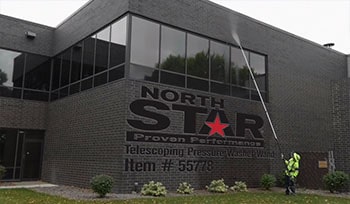
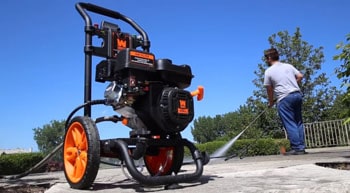
I need a pressure washer for maintenance man to clean several outdoor wooden staircases on older 3 story brick buildings, but I am not sure how much pressure is enough or too much, and whether a gas or electric model is best. I do not want to damage the stairs or the mortar holding the bricks in place with too much pressure, be too cumbersome to move from building to building, or disturb residents or their pets with excessive noise. But the machine would need to be able to clean 9 or 10 staircases once or twice over the course of the summer
Can I use a gas-powered pressure washer inside my home?
Generally, gas-powered pressure washers are best-suited to challenging outdoor tasks such as cleaning grout, tough to remove tree sap, and even mineral buildup. While professional contractors may use gas-powered pressure washers in the home, homeowners need to be aware of manufacturer guidance and other safety considerations. However, if you feel confident in your abilities to get an excellent clean while staying safe, this is a good option for the tougher messes in your home.
Which pressure washer would you recommend for reaching second and third story siding?
Hi. I had a Devilbliss pressure washer, 5hp gas 2200 psi. I loaned it to a friend who said it got stolen. This pressure washer was so easy for me to start on the first pull. I loved it. Now I have to replace it and would like something comparable. I like that it had a Honda engine and 5 hose tips. I am struggling after a couple months of research. Can you give me some advice??
Hello Bobbi, sorry you’ve had trouble finding the right replacement. If you’re looking for something that is basically just an upgrade on what you had, try the Simpson Cleaning PS3228. This incredible device has offers a Honda engine and 2200 psi, along with 6.5hp. It also offers 2.5gpm and five quick change nozzles. While a bit pricy, you won’t ever be disappointed in the performance from a quality machine like the Simpson PS3228.
We live near Phoenix, where the temperatures rarely get close to freezing. Is it really necessary to winterize our pressure washer?
We live near Phoenix, where the temperatures rarely get close to freezing. Is it really necessary to winterize our pressure washer? (POSTED)
Answer: Since you’re in a warm climate, you don’t have to worry about freeze damage. However, if you’re not going to be using the pressure washer for several weeks, you should still go through the steps to “winterize” it, just to protect all the seals, hoses, and inner workings from dry rot, mildew, and deterioration.
It’s really not difficult, even for gas pressure washers, and can save you money so you don’t have to buy replacement parts or replace an entire unit every year. Check out our handy guide here: https://cleanup.expert/info/how-to-winterize-pressure-washer/
We’ve avoided pressure washers for years, but hiring out is so dang expensive now and our siding is just awful. Ever since I googled “pressure washer injuries,” – not for the faint of heart – I’m scared I might do something wrong and cause damage. Is pressure washing my home myself too dangerous?
We just googled that – you’re right. *shudder* Injuries from pressure washers are no joke. They can do serious damage, even to the point of severing fingers and toes. And they can also damage surfaces.
But, just like any other lawn and garden machine (hello, lawnmower), when used carefully as directed in the owner’s manual and with the proper safety precautions, you’re no more likely to hurt yourself with a power washer than you are a lawnmower.
We’ve written a detailed user guide with lots of safety info. There are lots of videos on YouTube to show you proper operation techniques as well. Biggest things to remember – closed toe shoes, goggles, long pants, NO ladders, and never, ever aim the spray at any person or pet. Do your research, find a quality machine, and use it safely! Good luck!
We live just north of New Orleans, where winters rarely get below the mid-40s in temp. Do I still need to winterize my gas power washer? I keep it in the attached garage where it never gets that cold.
Well, the answer is probably yes. Winterizing a pressure washer isn’t just for winter. If you’re not going to use it for 30 days or more, leaving it sit with any water and detergent in the lines can rust the inner workings, build up mildew, and damage seals.
Also, even in New Orleans, you could experience a freak cold spell or ice storm in winter. That could mean your home might lose power, and suddenly that warm garage isn’t so warm anymore. So to protect from possible freezing conditions, we definitely recommend that you winterize your power washer.
Fear not, though. It’s not as hard as you think. It’s a few minutes, tops. Watch this video to see how it’s done.